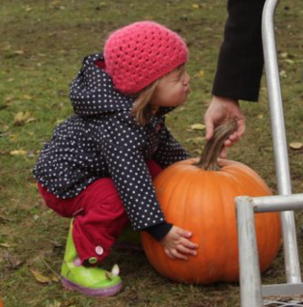Ensuring Success
| Site: | Colorado Education Learning Management System |
| Course: | 2e (Open Access) Supporting Twice Exceptional Learners |
| Book: | Ensuring Success |
| Printed by: | Guest user |
| Date: | Wednesday, 4 February 2026, 1:47 AM |
Description
Lesson 7: Final Reflection - Ensuring Success
Praise: Power and Problem
Effort ≠ Success

Gifted and twice-exceptional students have difficulties connecting success with effort. Gifted students often succeed without much effort, and twice-exceptional students can continually put a lot of effort into learning yet still not succeed. This is where praise comes in--it is important that students efforts are recognized in a way that will encourage them to have a positive mindset.
While assessment gets all the press, it is truly feedback for learning that can transform a student's learning. When feedback is predominantly negative, studies show that it can discourage student effort and achievement. As a teacher, most of the time it is easy to give encouraging, positive feedback. BUT this feedback should go beyond the simple "good job" or "nice work." You must dig deep to find an appropriate feedback response - one that will nurture a student's learning and provide feedback in a manner that the student does not have to leave the classroom feeling defeated or confused. Targeting the feedback to help students achieve the learning objective of the day is a good place to start. (Objective must be shared with students, of course, and preferably have it visible during the day, for example, written on the board).
Here are some thoughts about how to build an effective and emotionally safe feedback structure that guarantees better co-operation and thus deeper learning:
- Choose neutral words that are not loaded with value or judgment
- Only focus on the product!
- Use the objective as a framework in targeting the feedback.
- Focus first on something positive within the framework.
- Never criticize personal shortcomings that cannot be controlled.
- Give a suggestion for improvement and ask if the student agrees with you.
- Check understanding by asking your student to explain his/her plan for improvement.
The last point is very important because it clearly places the responsibility for improvement to students. Unfortunately, our student assessment systems too often focus on skills instead of the process of learning. That is why it is so essential to have a strong informal feedback system in the classroom to support the meaningfulness of learning and teaching.
- 20 Ways to Provide Effective Feedback
- Feedback: The Long View - Does Feedback Improve Learning?
- Four Ways to Give Good Feedback
- NCWIT Tips: 8 Ways to Give Students More Effective Feedback Using a Growth Mindset
- The Perils and Promises of Praise
- How Not to Talk to Your Kids
Supportive Team is Crucial!
It is crucial that the adults in a 2e learner's life collaborate with each other!
- Include both gifted education and special education representatives as members of the child study team.
- The composition of the MTSS team will vary depending on the student needs. For example, students on 504 plans, may be an interventionist instead of special education. There may be a mentor who plays a key role in the student's life. The idea is to get the best picture of the student to support the learner.
- Recognize and write strength-based goals. This should be done first.
- Define interventions to meet strength based goals.
- Write goals for scaffold and support the disability.
Being the Catalyst for Change
Throughout our course we have looked at many strategies that can be implemented in a classroom and at home, however, we also need to look at the bigger picture. How do we get the word out about the needs of our twice-exceptional students to our colleagues we work with, our communities and our administration. The following excerpt from The National Education Association Report: The Twice-Exceptional Dilemma looks at some ideas beyond the home and classroom. You can click on the link to review the report.
As educators, we have a responsibility to always do what is best for students. (Think "First, Best Instruction.") We need to be comfortable taking risks in our own learning in order to help others begin their own journey. We have to be innovative - we have to remember we are teaching for tomorrow, not yesterday. You have to be a change agent, which will sometimes be a simple task and other times it will feel like you are moving mountains. The 5 characteristics of a change agent are as follows: For a little more information about being a change agent,
1) Have a clear vision
2) Be patient but persistent
3) Ask tough questions
4) Be knowledgeable and lead by example
5) Create strong relationships built on trust
For a little more information about being a change agent, 5 Characteristics of a Change Agent.
For some additional information on Dual Differentiation so you can begin to share this with your colleagues:
We hope that you have saved the many links that we have included in this online course so that you can share them with colleagues or return to them when you find you need them.
Some Website Resources, Optional
 There are many resources available that describe evidence-based instructional programming options and interventions. These resources might be found by content area or by general gifted and special education topics. The following list of websites, though not exhaustive, should be useful when planning for 2e students.
There are many resources available that describe evidence-based instructional programming options and interventions. These resources might be found by content area or by general gifted and special education topics. The following list of websites, though not exhaustive, should be useful when planning for 2e students.
Jeffco Twice-Exceptional Parent Page
CHADD (Children and Adults with Attention Deficit/Hyperactivity Disorder)
NAGC (National Association for Gifted Children)
CEC (Council for Exceptional Children)
CDE topic brief on gifted students with SLD (Specific Learning Disabilities)